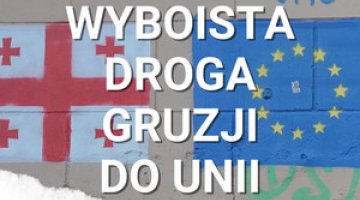Georgia: the opposition leader can take part in elections
On 22 May, at the third reading, the Georgian parliament passed an amendment to the constitution allowing EU citizens to stand in elections if they have lived in Georgia for at least five years. These amendments have been introduced for the period until 1 January 2014, which means that they will cover both this year's parliamentary elections (in October) and next year's presidential election. In turn, on 27 May, the first meeting (assembling between 30,000 and 50,000 people) was held in Tbilisi by the newly established opposition coalition Georgia’s Dream, headed by Bidzina Ivanishvili, a businessman and philanthropist, and the richest man in Georgia. His relationship with Russia, where he made his money in the 1990s, remains unclear; Forbes magazine estimated his fortune at about US$6 billion (approximately half of Georgia's GDP last year).
-
The amendments are designed to allow Ivanishvili to stand in the elections (he has not stated whether he will take advantage of this), and were prepared with him in mind. Among the evidence for this is the fact that at the last moment, the parliament reduced the required period of residence in Georgia from ten to five years (Ivanishvili has lived there for less than ten years). Previously, the government had sought to exclude Ivanishvili from the political struggle, including depriving him of his citizenship in October 2011. The main reason for this change in the approach to the opposition leader was pressure from the West to meet the standards for democratic elections, together with President Mikheil Saakashvili’s conviction that Ivanishvili cannot threaten his position. At the same time, by allowing him to run in the elections, the ruling camp has reducedthe risk that the vote would lose its legitimacy, and so lessen the possibility of any mass post-election protests.
-
Ivanishvili’s importance results from his huge financial resources and his ability to unite the warring Georgian opposition, of which he is the sole sponsor. Ivanishvili’s own party (Georgia’s Dream /Democratic Georgia) has been joined in the opposition coalition by a range of senior opposition parties, including Irakli Alasania’s Free Democrats party, which is well regarded by the West. So the coalition Ivanishvili has built up is now the only alternative to the government camp. Its real strength will depend on how well it manages public discontent, and on its ability to build a strong and cohesive party. The process of drawing up a political programme will also be of great importance; what their programme might be remains unclear, and has been limited to criticism of the government and the repetition of populist slogans.
- Although the government camp is likely to win the next elections (polls in March this year only gave Ivanishvili less than 15%, compared to about 50% to the ruling party), a parliamentary opposition will appear which has not so far existed, and which will find it easier to articulate its programme than has hitherto been the case. It will also find seeking public support easier, which – together with the financing from Ivanishvili – will greatly expand its capabilities. However the parliamentary elections will not be the end of the struggle, because the political battle will remain fierce at least until the next presidential election (which the current president Mikheil Saakashvili will be unable to run in), and the coming into effect of constitutional amendments to increase the role of parliament.



